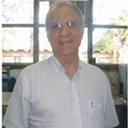Creatine supplementation prevents hyperhomocysteinemia, oxidative stress and cancer-induced cachexia progression in Walker-256 tumor-bearing rats.
الكلمات الدالة
نبذة مختصرة
The purpose of this study was to investigate (1) the impact of tumor growth on homocysteine (Hcy) metabolism, liver oxidative stress and cancer cachexia and, (2) the potential benefits of creatine supplementation in Walker-256 tumor-bearing rats. Three experiments were conducted. First, rats were killed on days 5 (D5), 10 (D10) and 14 (D14) after tumor implantation. In experiment 2, rats were randomly assigned to three groups designated as control (C), tumor-bearing (T) and tumor-bearing supplemented with creatine (TCr). A life span experiment was conducted as the third experiment. Creatine was supplied in drinking water for 21 days (8 g/L) in all cases. Tumor implantation consisted of a suspension of Walker-256 cells (8.0 × 10(7) cells in 0.5 mL of PBS). The progressive increase (P < 0.05) in tumor mass coincided with a progressively lower body weight and higher hepatic oxidative stress; plasma Hcy concentration was 80 % higher (P < 0.05) by 10 days of tumor implantation. Impaired Hcy metabolism was evidenced by decreased hepatic betaine-homocysteine methyltransferase (Bhmt), glycine N-methyltransferase (Gnmt) and cystathionine beta synthase (CBS) gene expression. In contrast, creatine supplementation promoted a 28 % reduction of tumor weight (P < 0.05). Plasma Hcy (C 6.1 ± 0.6, T 10.3 ± 1.5, TCr 6.3 ± 0.9, µmol/L) and hepatic oxidative stress were lower in the TCr group compared to T. Creatine supplementation was unable to decrease Hcy concentration and to increase SAM/SAH ratio in tumor tissue. These data suggest that creatine effects on hepatic impaired Hcy metabolism promoted by tumor cell inoculation are responsible to decrease plasma Hcy in tumor-bearing rats. In conclusion, Walker-256 tumor growth is associated with progressive hyperhomocysteinemia, body weight loss and liver oxidative stress in rats. Creatine supplementation, however, prevented these tumor-associated perturbations.


